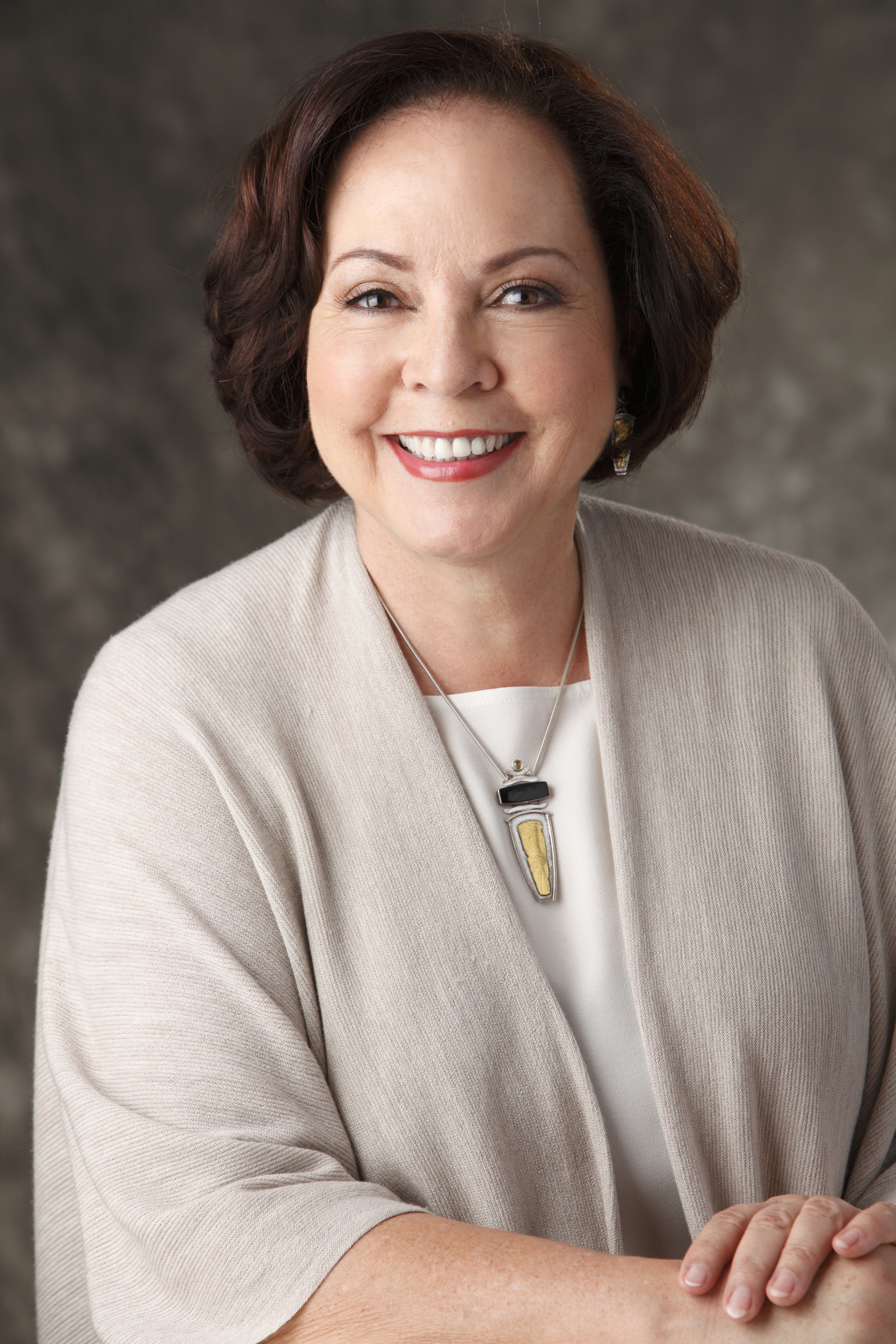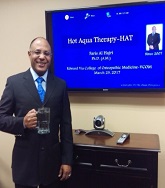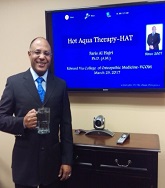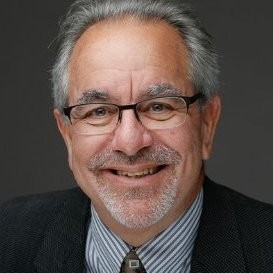Scientific Program
Keynote Session:
A PHP Error was encountered
Severity: 8192
Message: trim(): Passing null to parameter #1 ($string) of type string is deprecated
Filename: pastconference/past-program-schedule.php
Line Number: 239
Backtrace:
File: /efsdata/meetingsint-com/application/views/pastconference/past-program-schedule.php
Line: 239
Function: trim
File: /efsdata/meetingsint-com/application/controllers/Pastconference.php
Line: 128
Function: view
File: /efsdata/meetingsint-com/index.php
Line: 317
Function: require_once
Title: Addiction Therapy from vicious to productive behaviors and the role of Haqua Revitalizeâ„¢ Therapy-HART
Biography:
Faris AlHajri, Ph.D (A.M.), is an expert, international speaker, researcher, discoverer, and founder of ‘Haqua Revitalize™ Therapy’ (otherwise known as Hydro-Thermal Therapy-HTT or Aqua Calidum Therapy-ACT, or Hot Aqua Therapy-HAT). Dr. AlHajri began AlHajri Holistic Health & Wellness, LLC-AHHW out of a desire to promote healthy living through the benefits of Haqua Revitalize™ Therapy. This therapy involves various distinct modalities: Internal Therapeutic Method - Therapeutic Method of Haqua Gulping, Haqua Neck Stretching Method, Haqua Gargling Method, Haqua Mouth Bleaching Method, Haqua Teeth Bleaching Method, Haqua Kata Fat-Burning Method; External Therapeutic Methods- Haqua Towel Therapy, Haqua Massage Therapy, Haqua Air Therapy, Haqua Steam Therapy, and Haqua Stretch Therapy. Dr. AlHajri has worked extensively in Oman and other countries promoting this scientifically sound alternative therapy which has received peer review at a variety of national and international conferences and in other media.
Abstract:
Addiction- a conduct seen as a kind of mental disorder or a disease of the brain by various scientific researches. Every individual is in some form or another, prompted to a repeated exposure to an addictive stimulus, a personal desire in searching for uncertain. An excessive exposure to this kind of addictive stimuli, irrespective of the source of the addiction, could turn to destructive, rather that constructive, such as but not limited to; food craving, workaholism, intense sexual intercourse, gambling, smoking, alcoholism, drugs, cocaine, nicotine, etc. The term addiction is frequently misused to refer to other compulsive behaviors or disorders. Any form of toxic substance is destructive for it is associated with long-term complications. Conversely, some other forms of addiction could be constructive; such as high-thrill cultural, social or sport activities- engagement in welfare and social activities, workaholism, aerobic exercise, fishing, hiking, golfing, television watching, internet and social media activities, etc.; for, they are perceived as being essentially positive, desirable, and pleasurable. They lead individuals in the prevention of depression, anxiety, post-traumatic stress disorder.
Any excessive use of these activities results in repeated release of high amounts of dopamine, which in turn affects the reward pathway directly through heightened receptor activation, could turn from constructive to destructive, in the same path of toxic substances.
For the past ten years in the studies of Haqua Revitalize™ Therapy, otherwise called as Hot Aqua Therapy, or Aqua Calidum Therapy, a new form of Addiction Therapy; has been found to be the Essential Fuels of the Brain in revitalizing productive neuroplasticity in the brain, and eradicating vicious addictive behaviors. These Essential Fuels are branded as the FEEL’s – The Four Essential Fuels of Life. The Feel’s are the basis of all changes in the physical structure of the brain.
A PHP Error was encountered
Severity: 8192
Message: trim(): Passing null to parameter #1 ($string) of type string is deprecated
Filename: pastconference/past-program-schedule.php
Line Number: 239
Backtrace:
File: /efsdata/meetingsint-com/application/views/pastconference/past-program-schedule.php
Line: 239
Function: trim
File: /efsdata/meetingsint-com/application/controllers/Pastconference.php
Line: 128
Function: view
File: /efsdata/meetingsint-com/index.php
Line: 317
Function: require_once
Title: Family Crisis – Relationship Crisis – Addiction Crisis
Biography:
Abstract:
No two-crisis situations are the same. They vary by family, individual, and relationship. They can encompass complex family dynamics, emotional distress, anger issues, and entitlements and often involve substance abuse.
Many times these crisis situations involve:
- A destructive family member
- Addiction or drug abuse
- Unhealthy relationships
- Marriage that is on the rocks
- A grown child or teen refusing to adapt to life’s challenges
Most importantly, they are starting to spiral. It’s time to get help. One thing they all have in common: well-meaning individuals such as yourself feel hopeless, frustrated, and trapped. You feel like you’ve done everything you can to remedy the situation, but things aren’t changing.
Or they are getting worse. Crisis coaching helps you and your loved ones get back on track. I step into a high-stress situation in order to help get everyone unstuck. This involves an intensive look at your current situation and all the factors involved.
My goal is to equip you and your loved ones with the tools, support, and direction to move forward. Unlike traditional counseling, this is not a long-term endeavor. I work with you until we have successfully navigated your current situation and you are confident in your abilities to go forward.
My Approach
Crisis coaching is an in-depth, no nonsense method to quickly assessing your crisis situation and charting a path to move forward.
Title: SMART Recovery and AA: How different?
Biography:
A. Tom Horvath, Ph.D., ABPP (Clinical Psychology), is the founder and president of Practical Recovery Psychology Group, a self-empowering addiction treatment center in San Diego, past president of the American Psychological Association’s Society of Addiction Psychology (Division 50), the world’s largest organization of addiction psychologists, past president of the San Diego Psychological Association, and author of Sex, Drugs, Gambling & Chocolate: A Workbook for Overcoming Addictions (recognized as a “Self-Help Book of Merit” by the Association for Behavioral and Cognitive Therapies, and in Self-Help That Works, edited by Norcross, Campbell, Grohol and Santrock). He was the volunteer president of SMART Recovery, an international non-profit offering free, self-empowering mutual help groups for abstaining from any substance or activity, for 20 years. He is a fellow of the San Diego Psychological Association, the Association for Behavioral and Cognitive Therapies, and the American Psychological Association.
Abstract:
On the surface SMART Recovery, with its self-empowering approach, and AA (Alcoholics Anonymous), with its powerlessness approach, appear to be opposites. SMART’s slogan is “Discover the Power of Choice.” AA’s first step is “We admitted we were powerless over alcohol—that our lives had become unmanageable.”
However, recent findings suggest that SMART and AA, as well as LifeRing and Women for Sobriety, are similarly effective (Atkins & Hawdon, 2007; Zemore, et al., under review). Further, these groups may work by the same mechanisms of behavior change (MOBC). Specifically for AA: “While AA’s original main text (‘the Big Book’, 1939) purports that recovery is achieved through quasi-religious/spiritual means (‘spiritual awakening’), findings from studies on MOBC suggest this may be true only for a minority of participants with high addiction severity. AA’s beneficial effects seem to be carried predominantly by social, cognitive and affective mechanisms” (Kelly, 2017). Although MOBC studies are not yet conducted for other groups, all groups may work in the same manner, just as common factors may primarily account for the effectiveness of individual psychotherapy (Norcross & Lambert, 2011). Specifically for AA: “Overall, AA confers benefit through multiple mechanisms simultaneously but, in particular, through facilitating adaptive social network changes and, by boosting social and negative affect, abstinence self-efficacy” (Kelly, 2017).
Disseminating knowledge about common group factors, while clarifying differences in each group’s manner of operation (e.g., the differences between how SMART and AA meetings are conducted) may improve the functioning of all groups, increase mutual respect, increase collective attendance, and improve outcomes. Future research may identify factors that predict client preference for a particular group. Communities that lack a full range of mutual help groups might engage in affirmative action to establish them.

Ms. CAROLYN COKER ROSS
CEO of The Anchor Program, an online coaching program for obesity and binge eating disorder USATitle: Integrative Medicine for Eating Disorders and Addictions
Biography:
Dr. Carolyn Coker Ross is an author, speaker, expert in using Integrative Medicine for the treatment of eating disorders, obesity and addictions. She is board certified in Preventive Medicine and Addiction Medicine and is a graduate of Andrew Weil’s fellowship in Integrative Medicine. She consults with treatment centers around the US who want to include her unique integrative medicine approach to treat eating disorders and addictions. She is the author of three books; the latest is The Food Addiction Recovery Workbook. Dr. Ross is the CEO of The Anchor Program™, an online coaching program for obesity and binge eating disorder.
Abstract:
Community estimates from 2000 indicate over 40% of Americans over age 12 have used an illicit drug in their lifetime with 3.1 million having been in treatment for substance use disorders. Over nine percent of the total population met criteria for substance use disorders. Of those with SUDs 53-76% have a comorbid mood or anxiety disorder, personality disorder or eating disorder. Nationwide, approximately 20-30% of all individuals with anorexia nervosa and 40-70% of bulimics have co-morbid substance use disorders. For binge eating disorder, substance use disorders are a significant co-occurring diagnosis. Up to one-third of female patients with alcohol use disorder (AUD) may have undiagnosed eating disorders (ED). At any given time, 30% of women receiving treatment for substance use disorders may also have a serious eating disorder.
Substance use disorders and eating disorders share many components and characteristics including genetic predisposition for addictions, a history of trauma and attachment disorders and changes in the dopamine reward centers in the brain (reward deficiency syndrome or RDS). This element of cross-addiction speaks to the fact that, while substance use disorders may begin as part of a primary eating disorder (i.e. the use of stimulants to lose weight), for many individuals, there may be common etiological factors, including family history of SUD, trauma and major depression that promote the development and maintenance of both SUD and ED.
Integrative medicine is an important tool in addressing the brain chemistry and nutritional deficits associated with both ED and SUD. As well, it is uniquely able to address the dysregulation of the hypothalamic-pituitary-adrenal axis (hyperactivity of the stress response) and to provide limbic therapies for trauma that is common to both and which puts clients at high risk for relapse.
Keynote Session:
Oral Session 1:
- Addiction therapy from vicious to productive behaviors and the role of Haqua Revitalizeâ„¢ Therapy-HART

Chair
Faris AlHajri
AlHajri Holistic Health & Wellness LLC, USA




